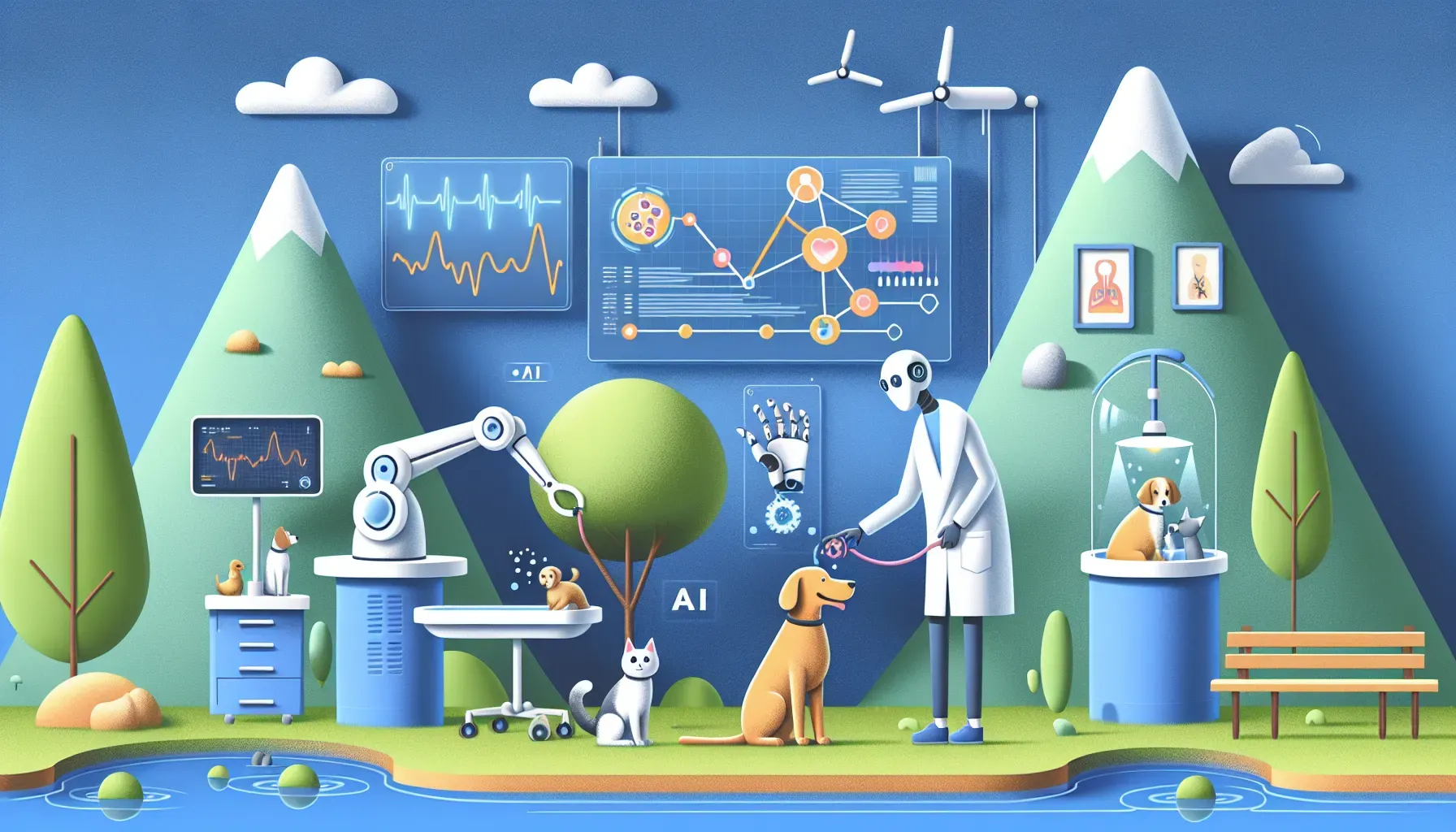The Evolution of AI in Pet Care: Redefining Veterinary Diagnostics and Treatment

AI has revolutionized the diagnostic process in pet healthcare. Through the analysis of extensive databases and medical records, AI algorithms can identify patterns and markers that may indicate potential health issues in animals. This has significantly enhanced the speed and accuracy of diagnosing various conditions, allowing veterinarians to initiate timely interventions.
AI's Impact on Pet Healthcare: From Diagnostics to Treatment
Moreover, AI contributes to the development of personalized treatment plans for pets. By leveraging machine learning, AI can analyze a pet's specific health data, genetic predispositions, and responses to previous treatments to tailor interventions that are most effective for an individual animal. This personalized approach not only improves treatment outcomes but also minimizes adverse effects, enhancing the overall quality of care.
One of the most promising applications of AI in pet care is its ability to harness big data for disease prediction and early detection in companion animals. By analyzing vast amounts of anonymized patient records and lifestyle data, AI algorithms can identify subtle indications of potential health risks in pets. This empowers veterinarians to take proactive measures, implement preventive strategies, and educate pet owners about mitigating potential health concerns before they escalate.
Big Data in Pet Care: Disease Prediction and Early Detection
The utilization of AI-driven predictive analytics also enables the early detection of conditions that may have otherwise gone unnoticed until they reached an advanced stage. This not only improves treatment outcomes but also helps reduce the financial burden on pet owners by addressing health issues before they become critical.
In the realm of surgical interventions, AI is playing a crucial role in enhancing precision and safety. Advanced imaging technologies coupled with AI algorithms allow for detailed preoperative planning and intraoperative guidance, leading to more precise surgical procedures with reduced risk. Additionally, AI-powered robotic surgical assistance systems provide veterinarians with greater dexterity and control during complex procedures, further improving surgical outcomes for pets.
Related Article: The Future of Pet Wellness: Navigating Technological Innovations and Personalized Care
AI-Powered Surgical Assistance and Precision Medicine for Pets
Furthermore, AI facilitates the implementation of precision medicine in pet care. Through the analysis of molecular and genetic data, AI can identify targeted treatment approaches that are tailored to an individual pet's unique biological makeup. This not only holds tremendous promise for managing complex conditions but also underscores the growing importance of personalized medicine in veterinary practice.
While the integration of AI in pet care presents myriad benefits, it also brings forth ethical considerations that require careful deliberation. Ensuring transparency in AI-driven diagnostic processes and treatment recommendations is essential in upholding the trust between veterinarians, pet owners, and their animal companions. Additionally, ethical frameworks must be established to address concerns related to data privacy, algorithm bias, and the potential displacement of human judgment in clinical decision-making.
Striking a balance between technological advancement and ethical responsibility is paramount to ensure that AI enhances, rather than replaces, the human-animal bond at the core of veterinary medicine. Implementing robust standards for AI ethics within pet care practices is integral to fostering a harmonious integration of technology while upholding the welfare and dignity of companion animals.
Ethical Considerations of AI in Pet Care Practices
The evolution of AI in pet care represents a paradigm shift that holds immense promise for the future of veterinary medicine. From redefining diagnostics to enabling personalized treatment modalities, AI is catalyzing advancements that not only improve clinical outcomes but also contribute to the overall well-being of our cherished animal companions.
Frequently Asked Questions
AI enhances diagnostics in pet healthcare by analyzing extensive databases and medical records to identify patterns indicating potential health issues. This leads to faster and more accurate diagnoses, enabling veterinarians to initiate timely interventions, ultimately improving the quality of care for pets.
Big data plays a crucial role in pet disease prediction by allowing AI algorithms to analyze vast amounts of anonymized patient records and lifestyle data. This analysis helps identify subtle health risk indicators, enabling proactive measures and preventive strategies to mitigate potential health concerns.
Yes, AI assists in surgical procedures for pets by providing advanced imaging technologies and robotic surgical systems. These tools enhance precision and safety during operations, allowing veterinarians to perform complex procedures with greater control and improved outcomes for the animals.
Precision medicine in veterinary care involves tailoring treatment approaches based on an individual pet's genetic and molecular data. By analyzing this information, AI can identify targeted therapies that are most effective for specific conditions, enhancing treatment outcomes and overall animal health.
Ethical considerations in using AI in pet care include ensuring transparency in diagnostic processes, addressing data privacy concerns, and preventing algorithm bias. Establishing ethical frameworks is essential to maintain trust between veterinarians and pet owners while safeguarding the welfare of animals.
AI contributes to personalized treatment plans by analyzing a pet's health data, genetic predispositions, and past treatment responses. This tailored approach ensures that interventions are effective for each individual animal, improving treatment outcomes while minimizing adverse effects on their health.






